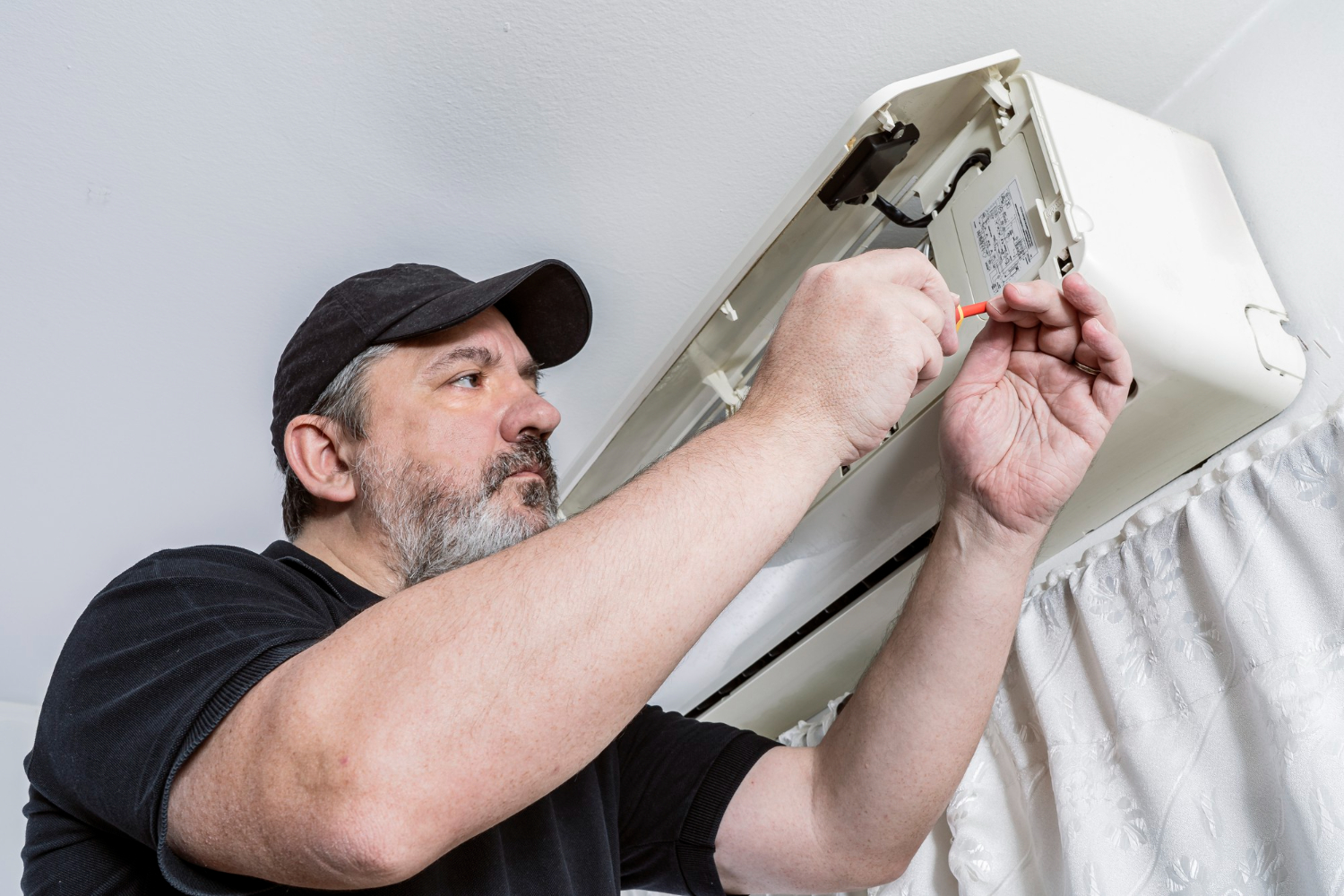Recognizing Urgent AC Repair Needs: Top Signs Revealed
When your air conditioning system starts behaving unusually, it can be a clear signal that something is amiss. Understanding these signals early can save you from discomfort, high utility bills, and potential system failures. We specialize in diagnosing and addressing such issues promptly, ensuring your HVAC systems perform optimally and last longer.
Recognizing these signs is crucial for maintaining a comfortable indoor environment, especially during the hotter months. Let’s guide you through these warning indicators so you can take action before minor issues escalate into major problems, ensuring your system is efficient and reliable year-round
Unusual Noises from the Unit
One definitive sign that your AC needs immediate attention is if it starts making unusual noises. Normal operation should be relatively quiet, with only a faint sound as air circulates through the vents. However, if you begin to hear noises such as grinding, squealing, or clattering, it’s a signal that the internal parts may be malfunctioning or about to break. For instance, a grinding sound could indicate that the motor’s bearings are failing, while a squealing noise may suggest problems with the belt connecting the motor to the fan. Our expert technicians can diagnose the specific cause of these sounds and provide the necessary repairs to prevent more severe damage to your system.
Insufficient Airflow
Poor airflow is a common sign that your air conditioner is not running efficiently. This could be due to a blockage that’s preventing air from moving through your home’s ductwork effectively or a broken motor. Occasionally, a clogged air filter may also lead to decreased airflow, which impedes the air conditioner’s ability to cool your home. Regular maintenance checks allow us to identify and resolve any issues with airflow, ensuring your units maintain optimal performance and improve your indoor air quality. We recommend homeowners check and replace their air filters regularly to support ventilation and prevent strain on the system.
Warm Air Blowing Out
When your air conditioner blows warm air, which could be evident during operation checks via the thermostat, it immediately suggests a problem. This issue could stem from various sources, including refrigerant leaks or issues with the compressor. It’s crucial that this is addressed quickly, as ongoing inefficiencies can force your unit to work harder, increasing energy consumption and resulting in higher utility bills. We assess these situations carefully, checking the refrigerant levels and inspecting the compressor for malfunctions, which can often resolve the problem without needing a complete system replacement.
Frequent Cycles
Your air conditioner should go through relatively routine cooling cycles, regardless of the weather. While you might expect your system to turn on more frequently during the hottest days of summer, it shouldn’t cycle on and off constantly. If you notice frequent cycles, it’s a sign that your AC needs an inspection. This problem could be as simple as needing a tune-up, or it could indicate a more serious issue requiring immediate repair. Regular inspections help prevent frequent cycling by ensuring components are clean and operational and addressing any minor issues before they worsen.
High Humidity Levels Inside
During spring and summer, you can expect sticky weather outdoors, but that doesn’t mean you want to experience high humidity indoors. Your air conditioner should moderate humidity levels automatically. If you notice water pooling around windows or a sticky feeling to the air inside, your system may not be functioning correctly. This could be due to malfunctioning equipment or an inadequacy in the AC’s capacity to properly dehumidify the air. We provide services that assess your system and, if necessary, recommend re-calibration or upgrades to restore proper humidity levels within your home.
Unpleasant Odors Emitting From the Unit
A strong, foul, or pungent smell coming from your air conditioning unit can be distressing. If you encounter musty smells, they might be indicative of mold within the unit or ductwork, which poses a health risk and requires immediate cleaning. Alternatively, a burning odor could suggest your system’s wire insulation has burned out and needs immediate replacement. We have specialized cleaning services that deal with eliminating mold and diagnostic tools to assess electrical issues to ensure that any unpleasant odors are promptly and safely addressed.
Rising Energy Bills
An unexplained rise in energy bills usually signals inefficiencies within your home’s HVAC system. If your air conditioning unit is older or has been lacking scheduled maintenance, it might not run as efficiently as it once did. This inefficiency often translates into higher energy costs because the system is working overtime to provide the same level of comfort. Monitoring your energy bills and noting significant changes can help catch issues early on. We conduct comprehensive evaluations and offer energy-efficient solutions that can help reduce your overall expenditures related to air conditioning.
Ensure Your Comfort with Expert AC Repair
Maintaining the efficiency of your air conditioning unit is crucial for ensuring optimal home comfort and managing energy costs. Recognizing the signs of AC distress and addressing them promptly prevents minor issues from escalating into costly repairs. At our family-owned and operated business, we take pride in offering expert AC repair in Conroe, as well as maintenance and installation services designed to keep your system running smoothly and efficiently. Don’t let AC troubles disrupt your peace of mind.
If you’re experiencing any of the issues mentioned, or if your AC system hasn’t been serviced recently, contact us at Carl’s Quality Cooling and Heating LLC today. Our team is ready to provide you with professional advice and top-notch service solutions that guarantee a cooler, more comfortable living environment. Trust us to restore your system’s functionality and ensure your indoor comfort, regardless of the season.





